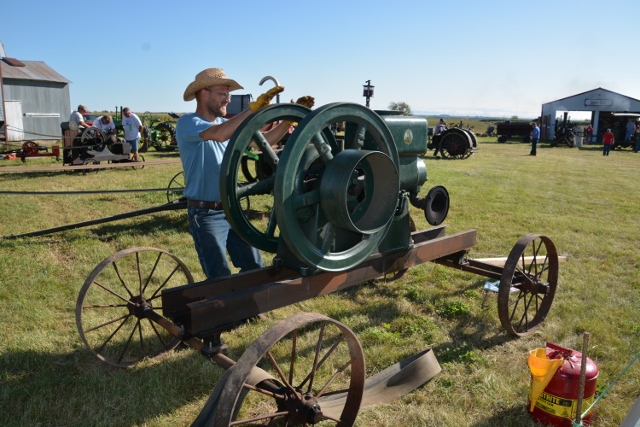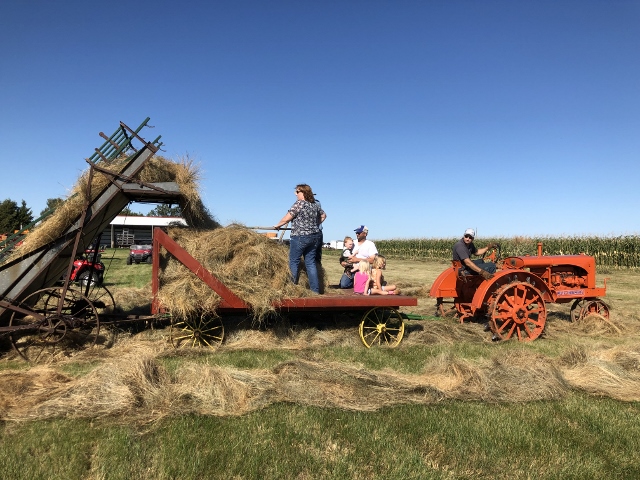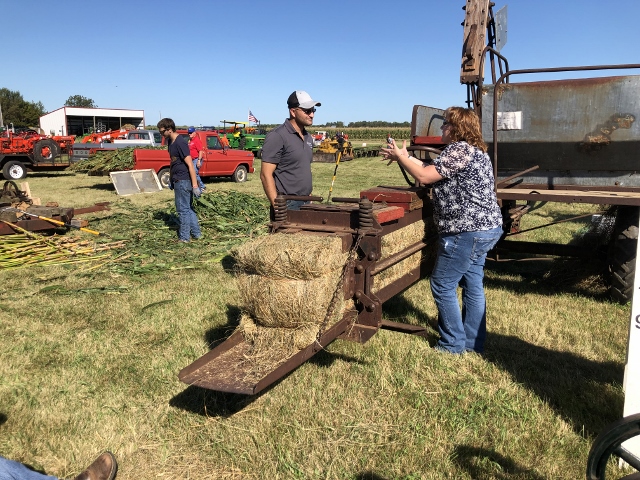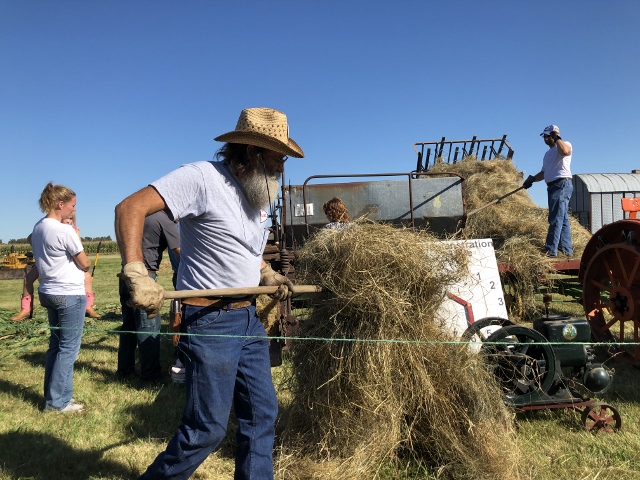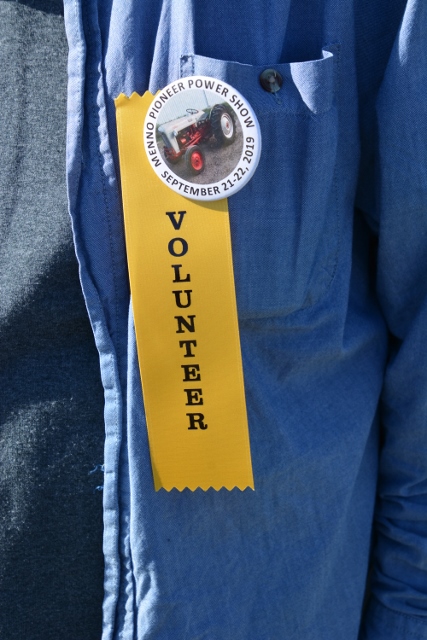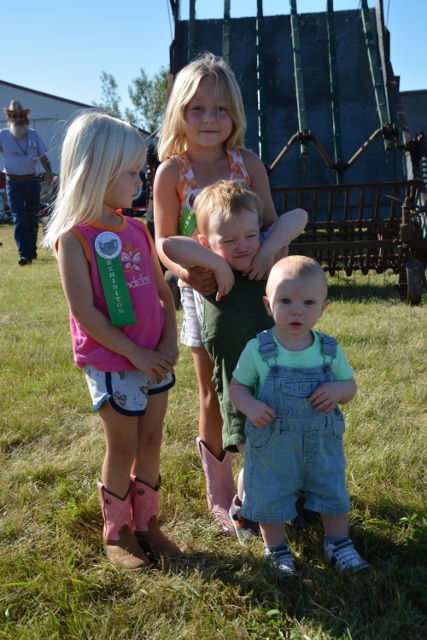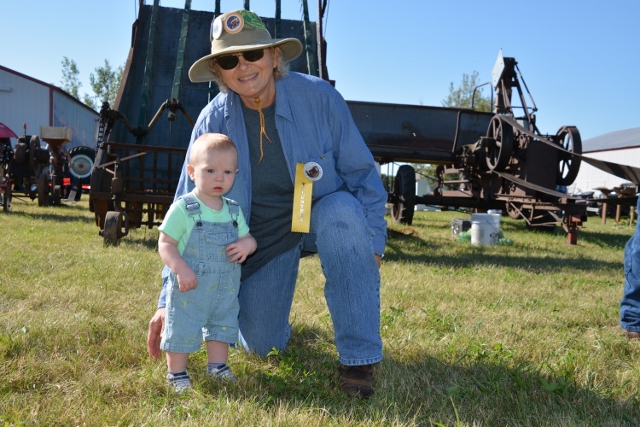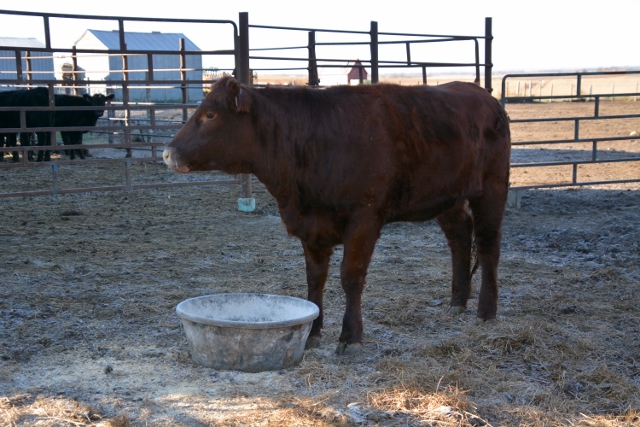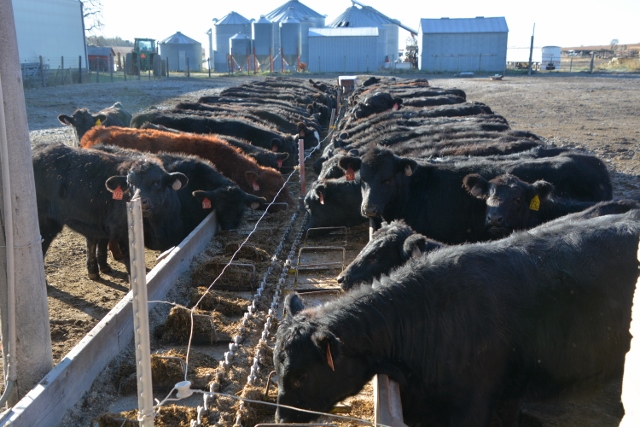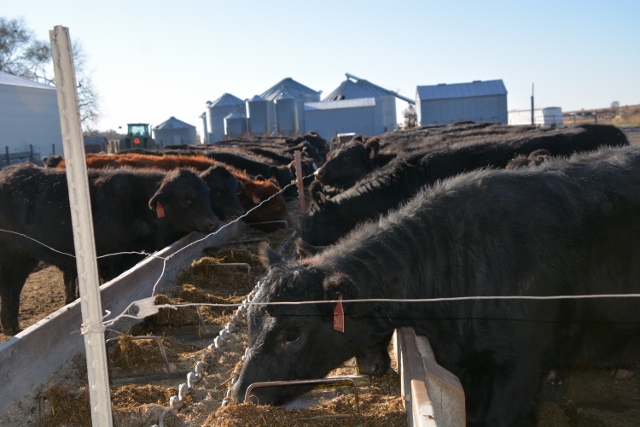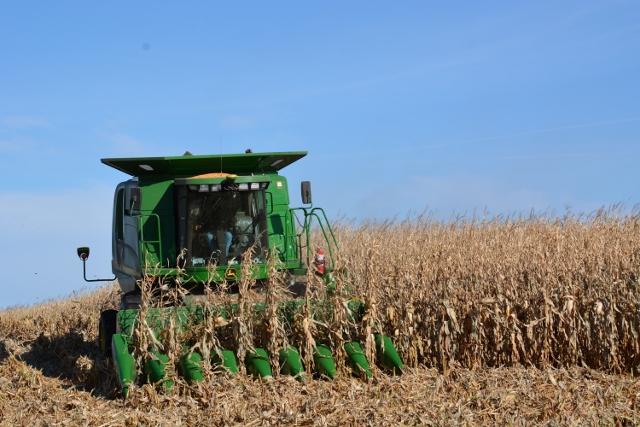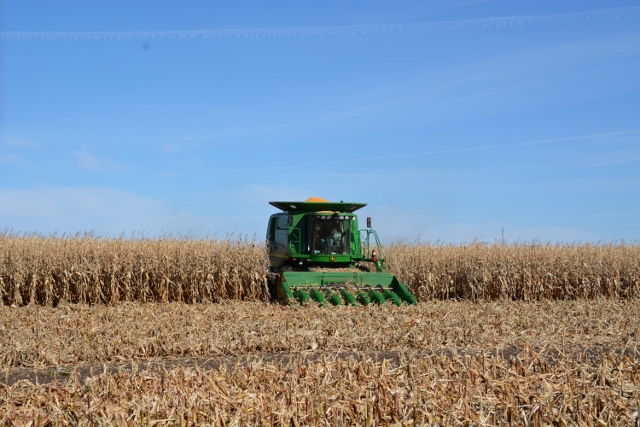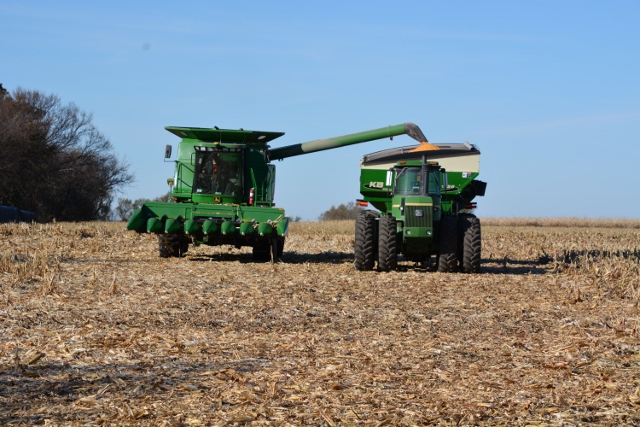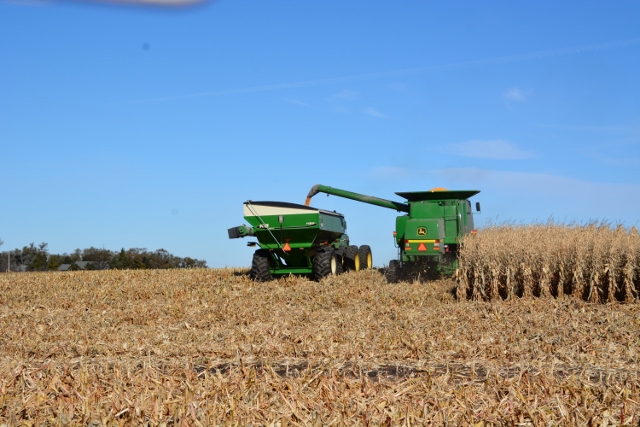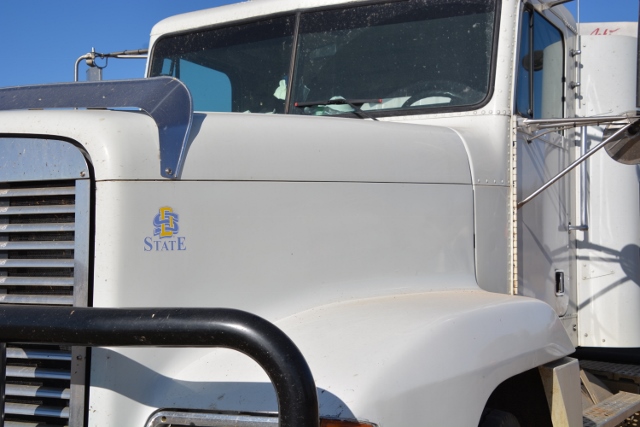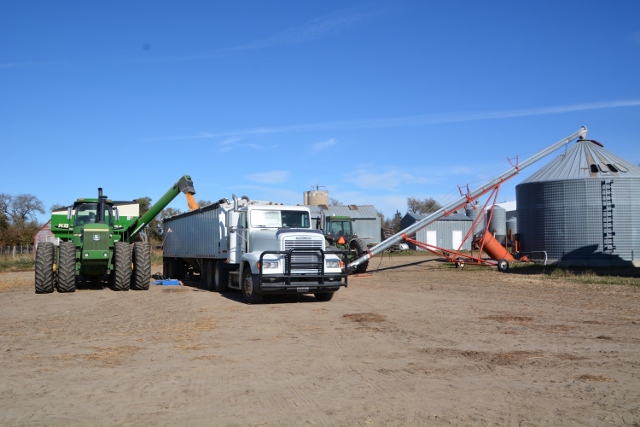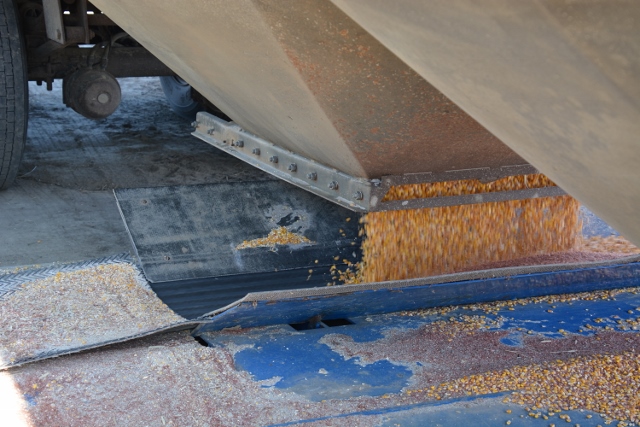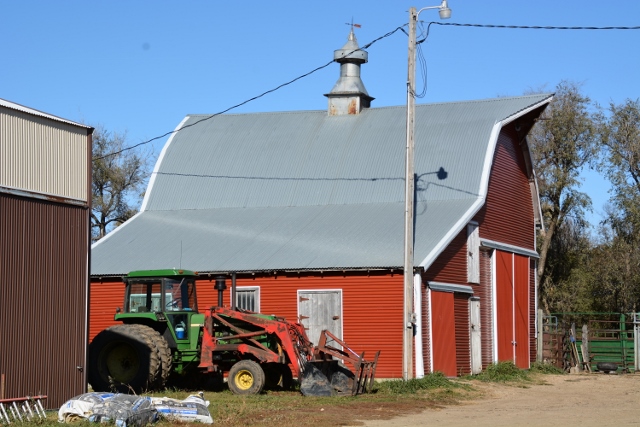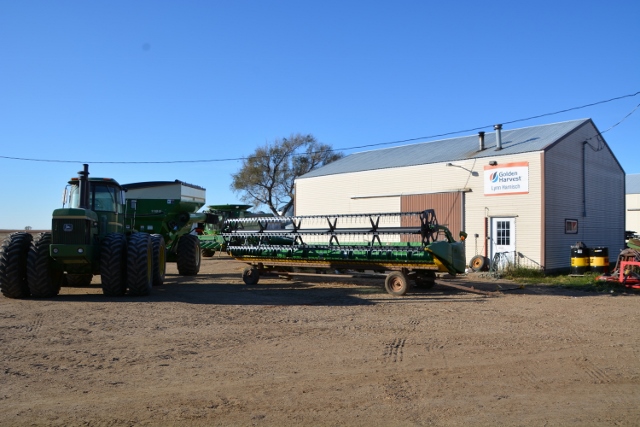Harnisch Farm Family
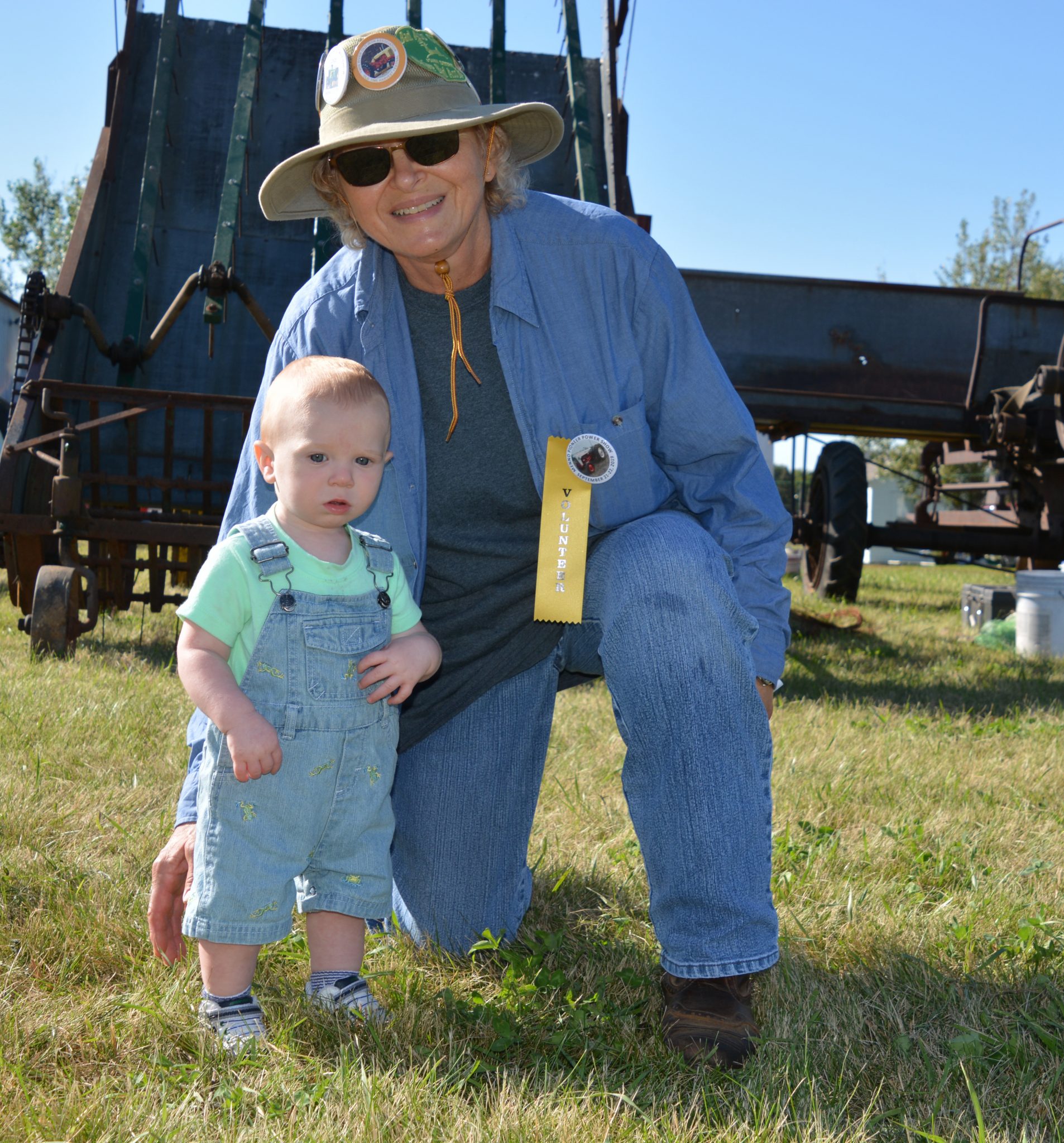
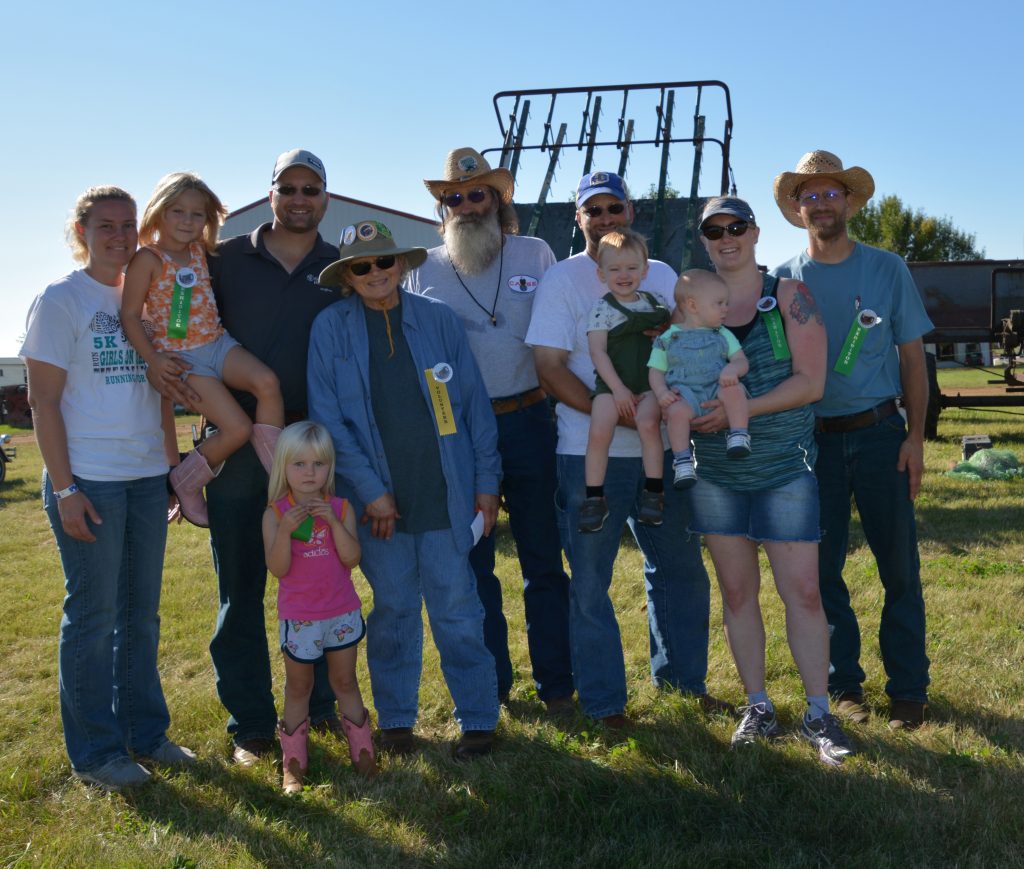
by Lura Roti for SDFU
It’s the difference between a boss and a manager, explains Matthew Harnisch of the working relationship he and his brothers have with their parents, Lynn and Sharleen. “A boss tells you what to do. A good manager includes you in on decisions. Growing up, my parents never told us we had to do things. They created an atmosphere where we were always part of the operation. We had ownership in the operation. We had skin in the game.”
He and his brothers, Daniel and David, still have “skin in the game.” And although all three men have full-time careers off the farm, most evenings and weekends find at least one, if not all three, back on the family’s crop and cattle farm near Parkston.
“What I find enjoyable about farming is being a part of growing a crop from a little seed all the way through harvest,” explains Daniel, who works full-time helping area farmers as an agronomist for Mettler Fertilizer.
“I enjoy being able to improve that crop with crop rotation, cover crops, no-till and tiling, all while improving the overall soil health for the next generation,” adds Daniel who has two sons already interested in farming.
“A boss tells you what to do. A good manager includes you in on decisions. Growing up, my parents never told us we had to do things. They created an atmosphere where we were always part of the operation. We had ownership in the operation. We had skin in the game.”
Matthew Harnisch
Lynn and Sharleen are happy their boys decided to remain involved.
“When the boys are around, things are just more exciting and I feel energized,” explains their dad, Lynn, 65. “When they started disappearing from home for college, it took the wind out of me.”
Like his sons, after high school Lynn left the farm to pursue an off-farm career as a mechanic. While he was working at Schmidt Motors, he met Sharleen, a farmgirl from Freeman.
Around the time they welcomed their third son, Matthew, into the world, Lynn was ready to return to the family farm, so he bought a quarter of land and a farmstead that was previously owned by his great uncle.
To complement their farm income, he opened Harnisch Repair. “I don’t like working for other people, but rather I enjoy the independence of farming,” he says.
From the start, Lynn and Sharleen were not afraid to do things different from how their fathers farmed. And like Matthew pointed out, the couple let their sons take the lead, implementing new management practices. “You know that old TV show, My Three Sons, we like to joke, on our farm it’s My Three Agronomists,” Sharleen says.
So, it makes sense that a lot of practices began to change about the time the boys graduated college – all three have agronomy degrees from South Dakota State University.
Following the advice of their sons, they converted their field management practices to no-till and updated their equipment with precision agriculture technology.
“No-till cut down on the workload, and the more I understand about soil biology and soil structure the more I am encouraged by no-till,” Lynn explains.
“No-till is the way we have chosen to farm as we need to protect our soils and our water,” says David. His brothers agree, building soil health is the family’s ultimate motivation for practices like no-till, adding cover crops to their corn and soybean rotation, and grazing cattle on cover crops during the winter months.
“No-till is the way we have chosen to farm as we need to protect our soils and our water.”
David Harnisch
“It is all about what the yield monitor in the corner of the combine cab says at harvest,” Matthew adds. “We are always pushing the envelope to increase yields. At the end of the day, the monitor is our report card, and soil health is one step in improving our yields.”
Today, Lynn leaves the input decisions up to his sons – Matthew selects the seed hybrids and varieties, while Daniel takes care of the fertility and chemical programs. “Our father says some days he just follows directions,” Matthew says. “He has a field plan we put together for each field in the tractor that tells him the hybrid, the population, the fertility program and the chemical program. It reinforces the fact that he is a good manager and understands the value of each person’s strengths.”
“I would not do as much as I do at my age if my sons were not around to help,” Lynn says.
Hauling grain 30 miles to go 4
Flooding along the James River Valley created unique challenges for the Harnisches this growing season. In addition to wet field conditions, several roads they depend on for hauling cattle and grain at harvest washed out.
“When we were able to get into fields for harvest, hauling grain to the yard ended up being a 30-mile-drive rather than four-mile drive, because of washed out and flooded roads,” Lynn says.
Lynn likes to overwinter his cattle close to the farmstead. As of Dec. 4, because of a 30-foot-wide, 300-foot-long washout on County Road 272, the road he typically uses to move cattle to the farm is closed. He is having to figure out another way to move his cattle home.
“I’m hoping next spring turns a lot better than last spring,” he says.
Preserving history of agriculture
After harvest is completed, Lynn will spend the winter working on equipment. “I do not like equipment breakdowns during planting and harvest, so in the winter I bring the corn planter, the combine and tractors through the shop for maintenance,” he explains.
Just like other projects around the farm, his sons grew up helping Lynn in the shop. In addition to repairs, the men have redesigned and manufactured farm equipment to meet their individual needs. When they decided to go to 22-inch rows, the men stripped a planter and rebuilt it to work for their corn and soybean operation.
During a collegiate agriculture tour of Argentina, Matthew saw a design for a planter closing wheel he thought would work well. He took a few photos and when he returned home, he, his dad and brothers designed and manufactured them for their planter.
“We had some struggles when we initially implemented no-till into our operation. In Argentina, they are pretty far advanced with no-till practices. I took a close look at the closing wheel designs they were using on their planters and drills and brought back some ideas that would work on our planter,” Matthew recalls.
In addition to the equipment used on their farm today, the Harnisches are often working on a piece or two of antique farm equipment. “We think it’s important to preserve how this country came to be where it is,” says David. “If you don’t have antique machinery to show the past, how will you understand?”
The hobby began when Lynn restored the stationary engine his Grandpa Harms used to pump water Grandma Harms used to run the washing machine. He pulled it out of the tree grove and began working on it. “It is satisfying, making something old work again, something other people don’t normally get to see,” Lynn says. “I get satisfaction from having stuff that runs nice.”
Since that first engine, the men have restored an 1880 Hero Burr Mill, 1927 Case, 1929 Case haypress and 1940 John Deere A … to name a few. They exhibit their equipment at antique power shows across the Midwest, including Madison’s Historic Prairie Village and the Menno Power Show. “The shows are a family event,” Sharleen explains.
Daniel serves as the chair of the Menno show.
“My brothers and I have repaired engines and tractors throughout high school and college,” he says. “The first one I restored was a horse-and-a-half John Deere.”
During the shows, the equipment doesn’t sit idle. It’s put to work so visitors can see how it worked. “There are a lot of people who have never seen this equipment. They don’t know what it actually does. To me, it’s important that we show it working so we can understand how we’ve progressed. We need to preserve this for generations to come,” Lynn says.
To see videos of the vintage farm equipment at work, visit www.sdfu.org and click on the Farm & Ranch Family tab found on the About Us page.


